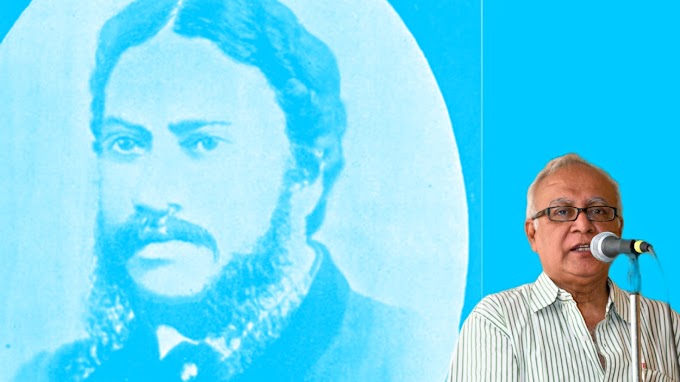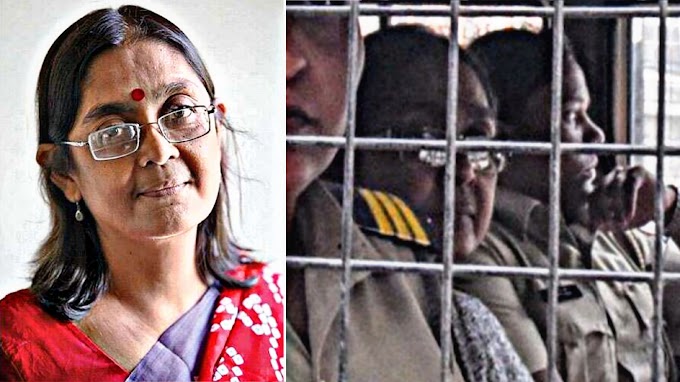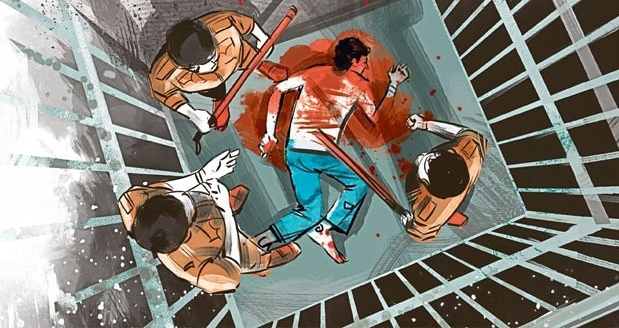Rishit Neogi
On the occassion of 51st foundation day (25 June) of APDR (Association for Protection of Democratic Rights) a public discussion on the issue of 'Displacement in the Name of Development and Peoples' Resistance against State Terror' was organised in Ram Mohan Library Hall, Kolkata on 26 June 2023. Speakers included Lingaraj Azad of Niyamgiri Suraksha Samiti (Odisha), Supen Hembrom of Prakriti Bachao-Adivasi Bachao Manch of Ayodhya Hills, Purulia (WB) and Damodar Turi of VVJA (Jharkhand). Moderated by human rights activist, member of APDR Tapas Chakraborty.
Speakers highlighted the burning issues faced by adivasi- mulvasi communities of these states. Lingaraj Azad stressed on the importance of fighting relentlessly against corporate loot of natural resources. Supen Hembrom urged urban citizens to join hands with adivasi communities to protect the environment. Damodar Turi highlighted the repression that is faced by marginalised communities who are fighting against displacement and environmental destruction. The meeting was attended by representatives of social movements, intellectuals, youth activists and journalists.
Various facets of the environmental movements and anti-displacement struggles of adivasi communities were discussed and debated by the speakers and audience. Lingaraj Azad and Supen Hembrom talked about the importance of recognising and protecting adivasi culture and lifestyle which is closely related to nature. Lingaraj Azad said that corporate propagandists often ask adivasis to choose between development and nature. They say that adivasis who live with nature must choose technology to join the path of development and progress. But they forget that it is technology and industry that are dependent on natural entities like land, water and energy to survive. Hence the question of choosing between nature and development is irrelevant. Supen Hembrom also questioned the propaganda of labelling adivasi customs and practices like hunting as savage and barbaric. Supen Hembrom discussed how adivasi communities renew their ties with the forest by going on a tokenistic hunting trip. These annual rituals are an important time when the communities observe the changing landscape of the forest and assess its well-being. Communities of Ayodhya Hills also play a huge role in stopping the spread of forest fires. Owing to historic oppression, the adivasi communities have lost their sense of ownership of forests but the people's movements in these areas have helped them assert their rights over the jal-jangal-jameen. Communities have found their lost confidence and are using forest produce to support themselves and their families. Lingaraj Azad stated that as human beings, we must be principally against all forms of violence. But the state terror that is being unleashed in adivasi areas in the name of tackling Maoism must be challenged by all democratic citizens of the country. Damodar Turi shared how today's justice system is failing to protect the rights of marginalised communities. Adivasi-mulvasi youth are incarcerated in huge numbers in Jharkhand and they are often unable to even hire lawyers who charge hefty fees to represent them in courts. Without proper legal counsel and lengthy court processes, thousands are languishing in jails.
The meeting was attended by various activists who are at the forefront of people's struggles in West Bengal like Deucha Pachami, Ayodhya Hills, Tajpur, Tilabani, Farakka, Sundarban, Jessore Road and others. The meeting was concluded by a discussion on how these various movements must come together in order to resist the blatant loot of natural resources and human rights violations committed by state actors. Only when national and international environmental and indigenous movements come together, we will be able to tackle climate change and save humanity.














0 Comments